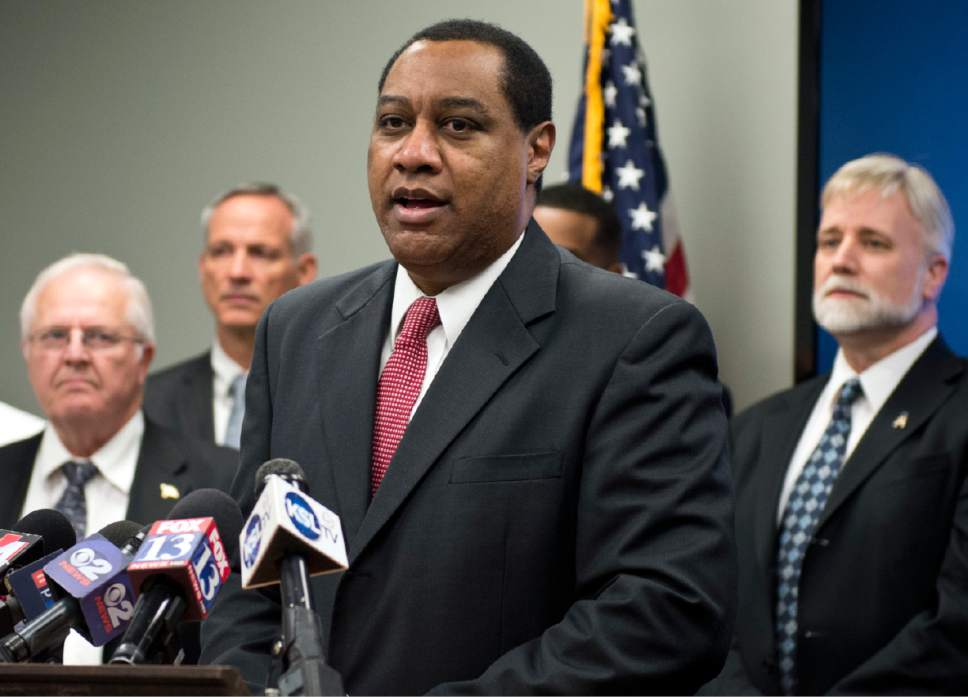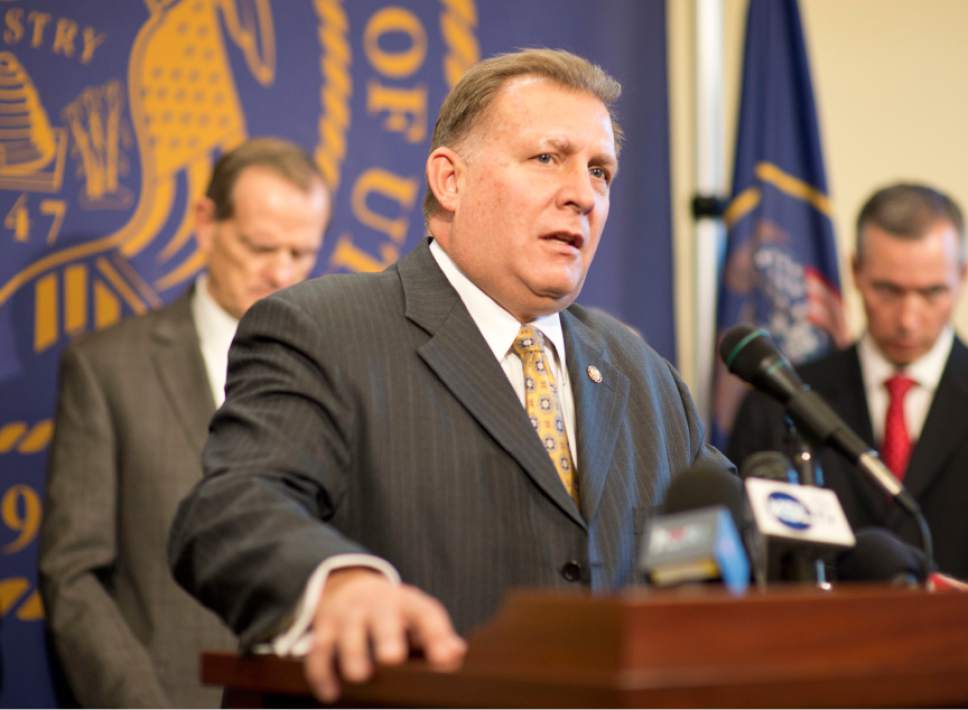This is an archived article that was published on sltrib.com in 2016, and information in the article may be outdated. It is provided only for personal research purposes and may not be reprinted.
The Utah Republican Party is pushing ahead with its federal appeal to changes to the process for nominating candidates, even as talks are underway among state lawmakers for a fix that could ultimately resolve the lawsuit.
The party filed its latest motion in the 10th U.S. Circuit Court of Appeals early Tuesday, arguing once again that the GOP-controlled Legislature violated the Republican Party's constitutional rights when it passed SB54.
That bill changed how parties nominate candidates, including allowing those running for office to get on the primary ballot by gathering signatures on a petition rather than going through the party's convention system.
"[The law] is unconstitutional not only because it imposes severe burdens on the [Utah Republican Party] without a commensurate state interest, but also because it is a product of view-point discrimination against the [party]," the GOP's attorney, Marcus Mumford, argued in his appeals court brief. "The district court erred when it misapplied the law to hold otherwise."
The party is appealing its loss before U.S. District Judge David Nuffer, who ruled the law didn't violate the party's right to decide how to choose its candidates. Nuffer did rule in the party's favor when it struck down a portion of the law that would have required the Republican Party to allow unaffiliated voters to cast ballots in the GOP primary elections.
The party argues Nuffer was wrong. It contends that the changes in SB54 — which were passed by the overwhelmingly Republican Legislature and signed by Republican Gov. Gary Herbert — were meant to undermine the Republican Party and hinder the party's candidates.
It also argues the number of signatures needed for candidates to get on the primary ballot — 2,000 for Senate candidates and 1,000 for House candidates — are arbitrary and burdensome, since in some districts it requires a candidate to get signatures from as much as 57 percent of registered Republicans in heavily Democratic districts and as few as 6 percent in others.
At the same time, Utah Republican Party Chairman James Evans is working with Sen. Curt Bramble, R-Provo, who sponsored SB54, to try to resolve one of the party's main concerns: how to make sure the nominee of the party gets a significant portion of the primary vote.
Republicans have voiced concerns that, if there are numerous candidates in a primary, one candidate could get the nomination with a small plurality.
Bramble has had legislation drafted that would require a runoff election when there are four or more candidates and none gets more than 35 percent of the vote. Bramble said Tuesday that he sent a copy of the draft bill to Evans earlier this month, but he hasn't heard back from the party chairman.
The Republican Party's governing body has approved dropping its legal challenge if the Legislature deals with the plurality issue, but Bramble said he's not sure the Legislature will be inclined to tinker with the law.
"We agreed to take a look at plurality and proposed a way to address it," Bramble said. "This bill is doing that, but I've been just casually talking to legislators and some say, 'Yeah, we ought to deal with plurality,' but there's just not much passion to do it."
Other lawmakers have proposed alternate ways to deal with the plurality issue, including letting the party delegates make the decision if no candidate gets to a certain threshold, or implementing a tiered-voting system in which voters rank candidates based on their preference; the lowest vote-getters would be eliminated until one candidate prevails.
However, it's also possible there could be an anticlimactic ending to the two-year-old litigation.
Mumford narrowly missed a deadline for filing his brief in the case, after missing another deadline earlier. On Nov. 30, the clerk for the 10th U.S. Circuit Court of Appeals sent a letter to the parties that stated that, "Unless the brief is filed within 10 days after the date of this letter, the appeal may be dismissed without further notice."
That gave Mumford until Dec. 12 to file his brief, but the brief was not filed until after midnight. Federal court policies frown on missed deadlines — especially on reply filings — and leave discretion to the court to decide whether to dismiss the case or to let it slide.
It is not the first time Mumford has missed deadlines in this case. Indeed, Nuffer, the district court judge, scolded Mumford for missing deadlines leading up to the trial, threatened him with sanctions, and ordered the Republican Party to bring on another lawyer to help ensure Mumford made the filing deadlines.
gehrke@sltrib.com Twitter: @RobertGehrke





